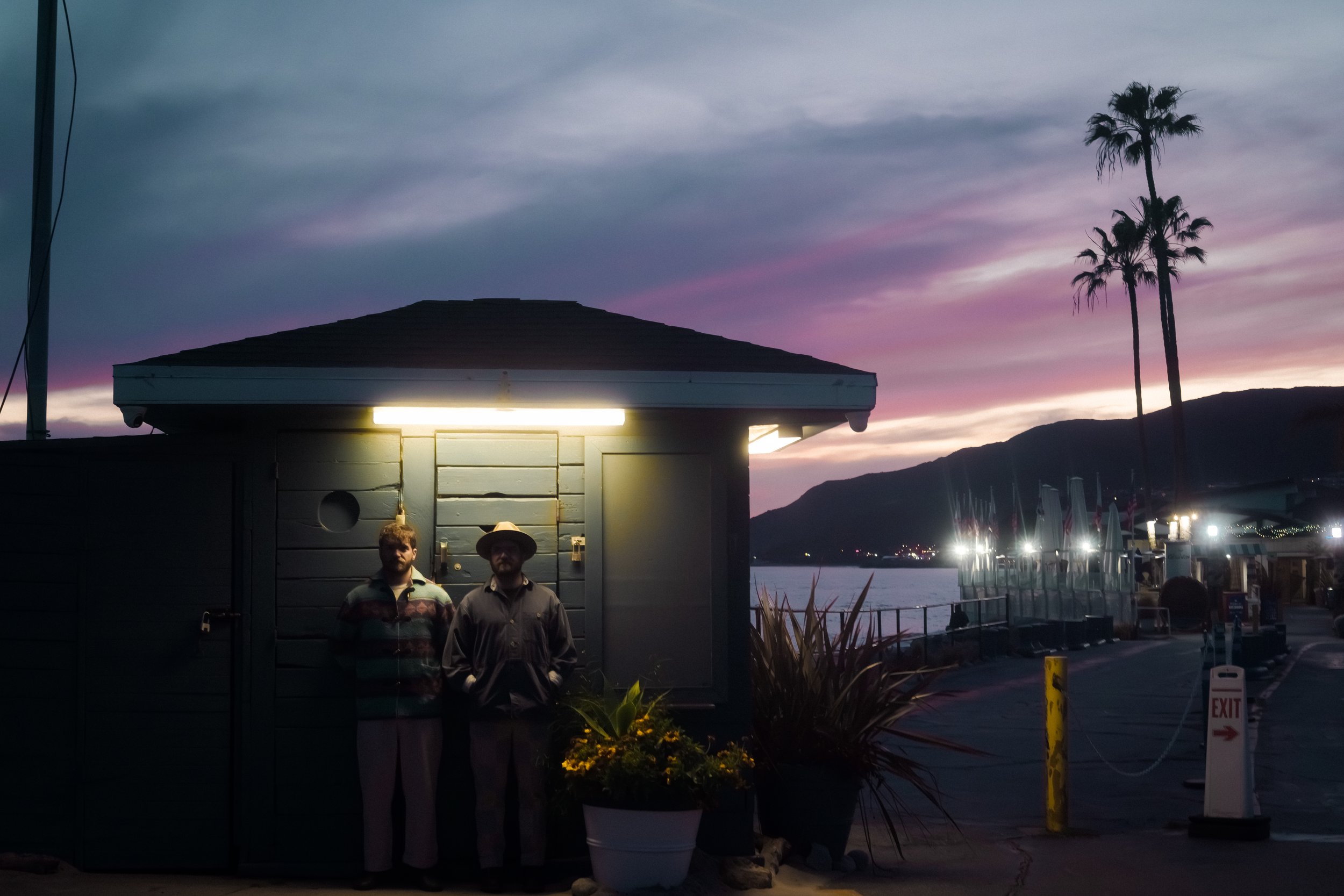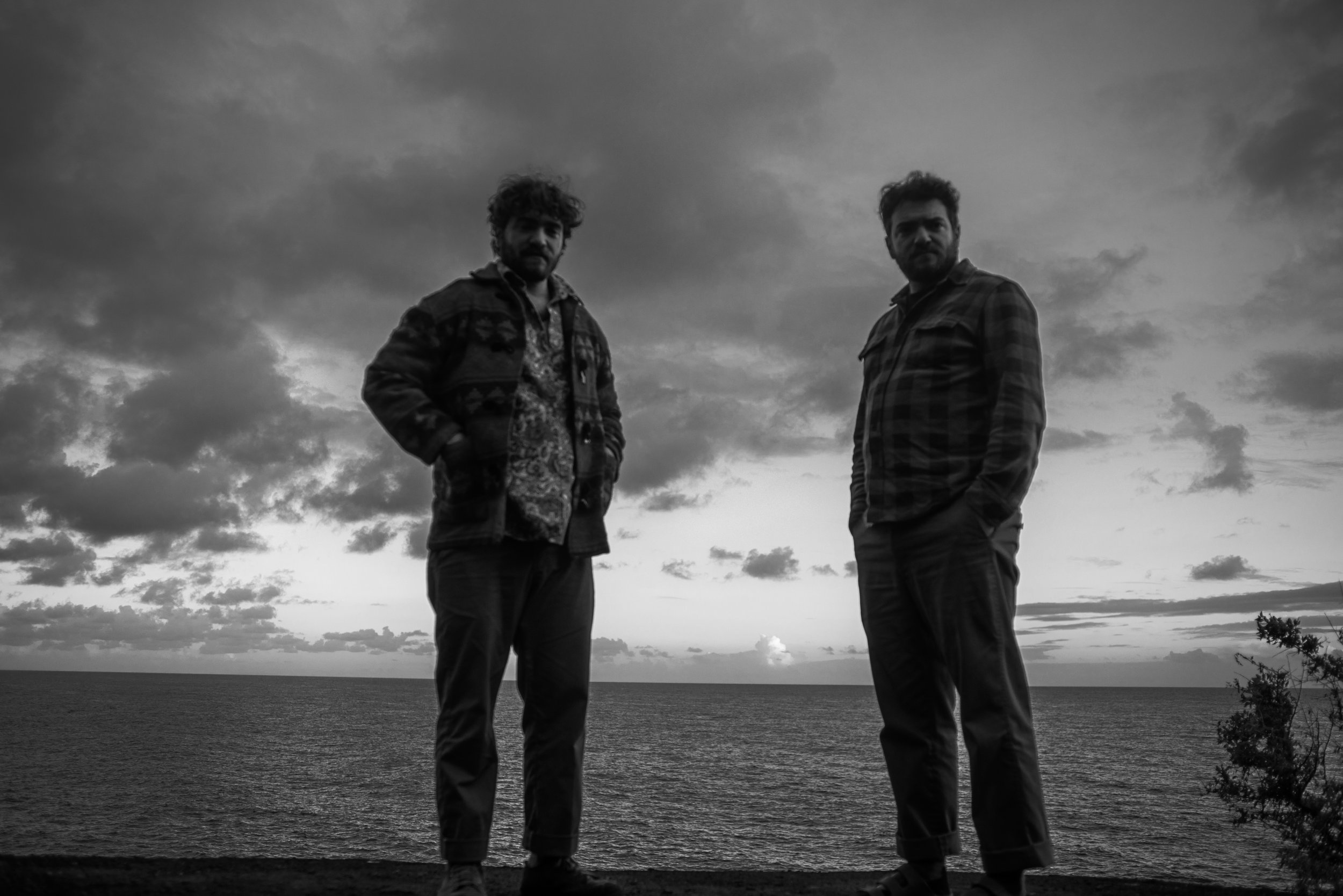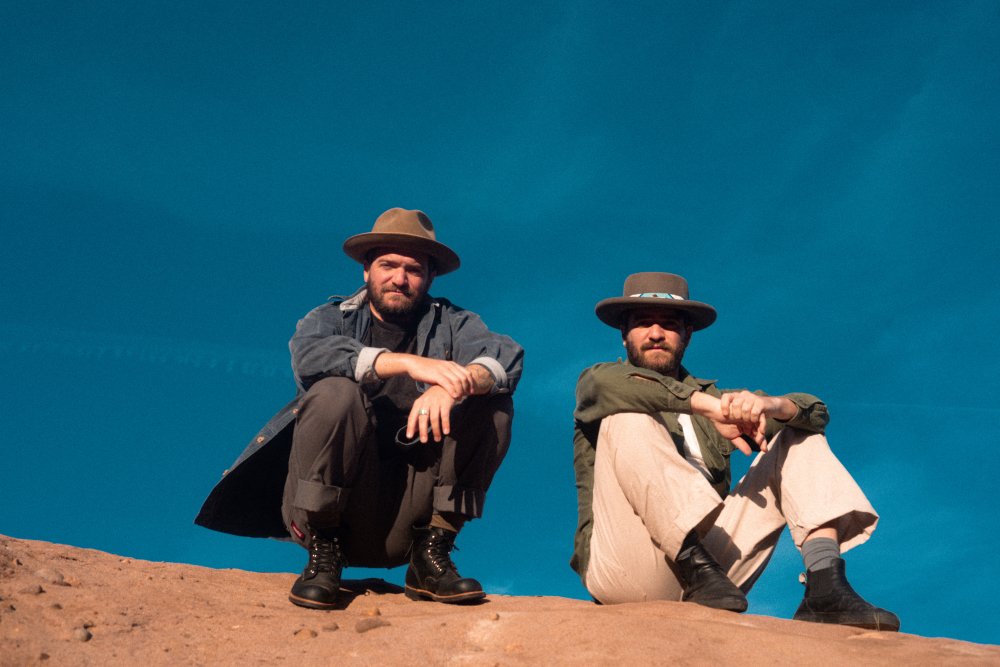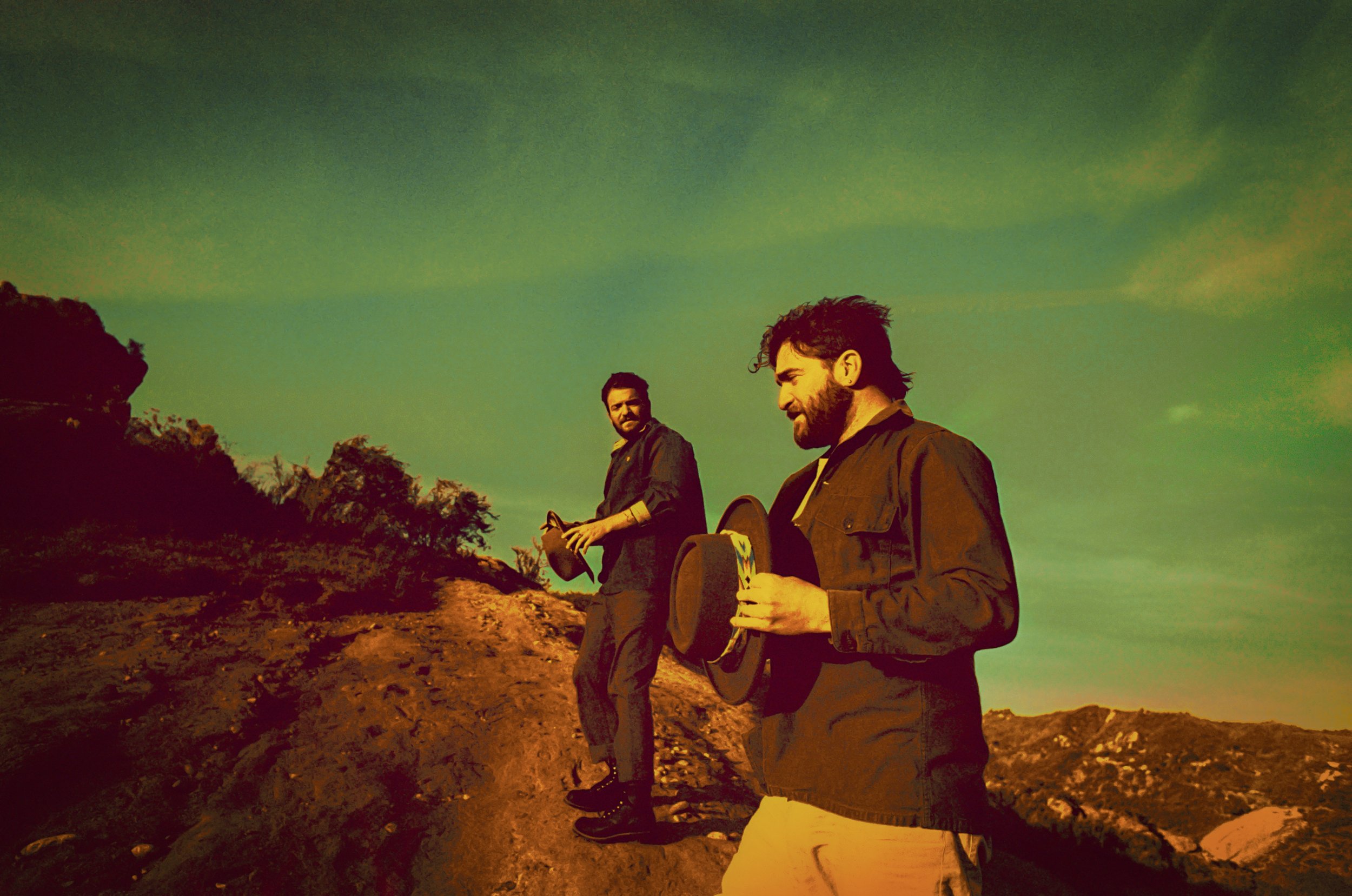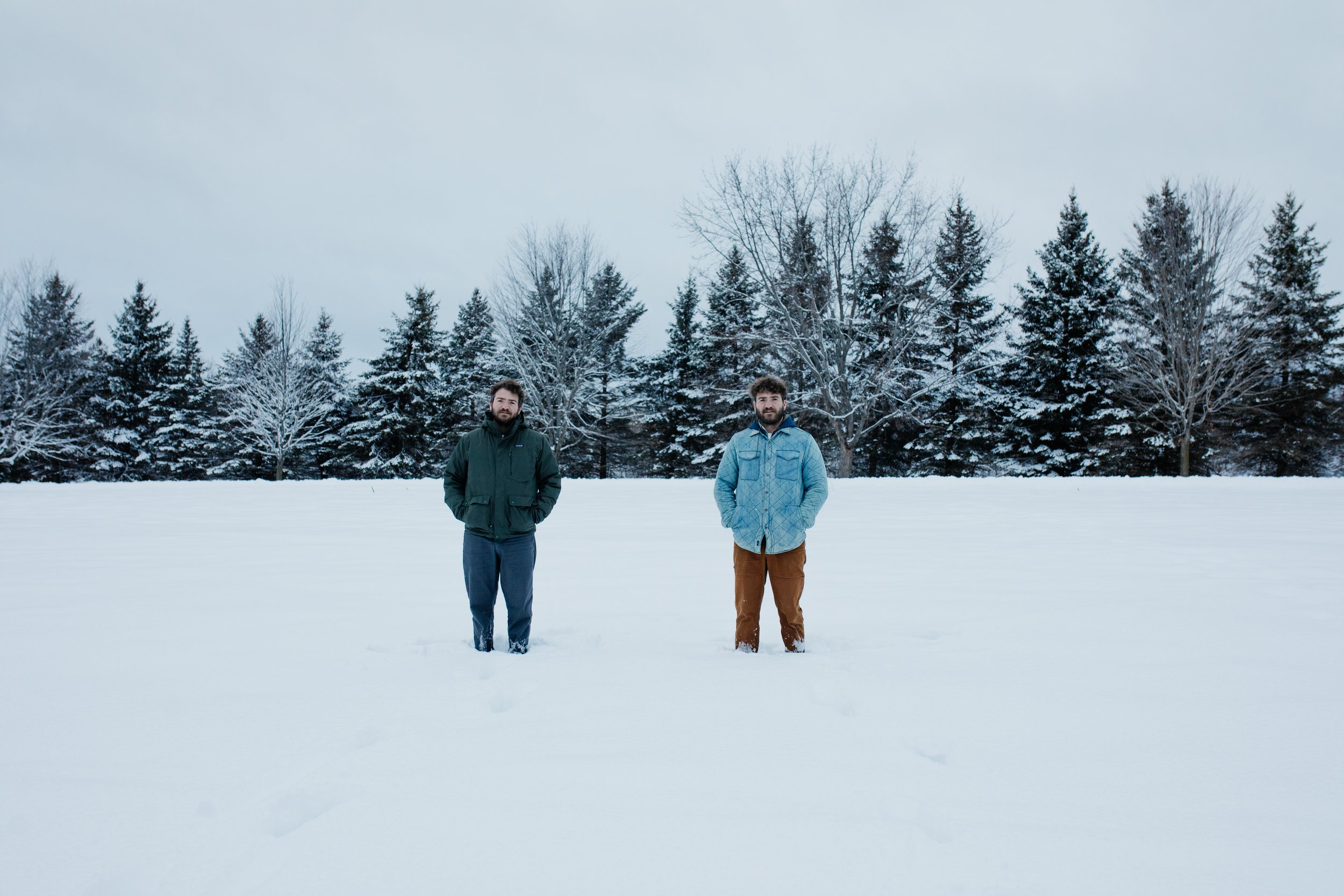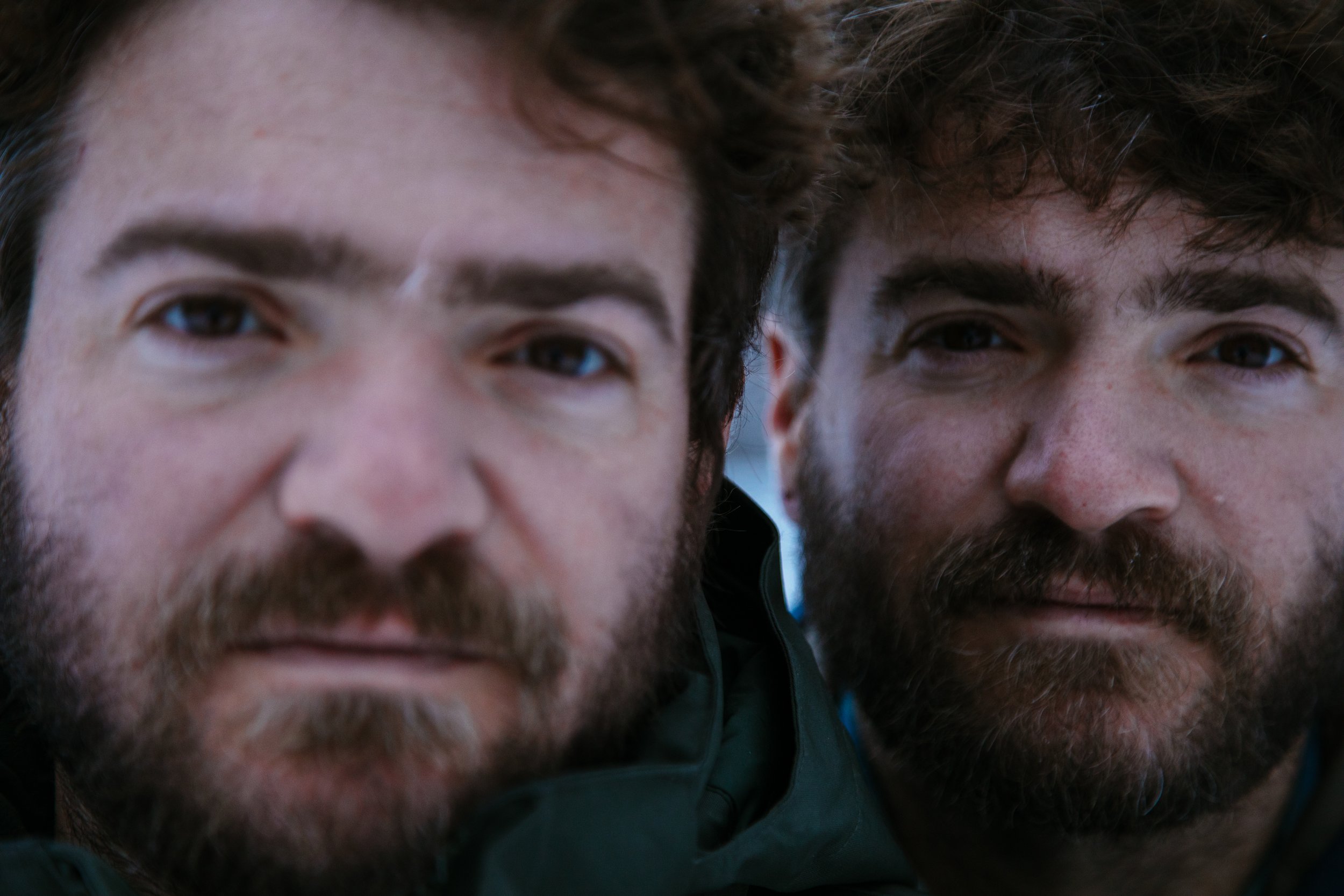Click Image to Download!
The Brother Brothers have spent most of their lives together, but on very different musical paths. Adam and David Moss formed the group in 2016 at the end of long but separate roads of musical exploration and self-discovery that culminated in a culture of music steeped in the appreciation for songwriting and tradition at its core. This is why, while it may seem as if the The Brother Brothers' music and harmonies stem from a lifetime spent together honing and crafting their sound, the truth is much to the contrary.
Growing up in Peoria, IL with classical music backgrounds on cello and viola, they found themselves looking outward. From the mountains of Appalachia to the cities of Chicago and New York, they found music that fed their souls. They moved from Austin up to Boston, on to New York and are presently settled in Miami and LA where they have each played with different bands and crafted their individual sounds. In 2016, the twin brothers decided to bring these influences to bear as a duo with a number of David’s original songs and songs of their traditional heroes adapted to represent their own styles.
Since then, they have captivated audiences all over the US, Canada, Europe, and Australia. Although appreciated for inquisitive and introspective songwriting, Adam and David’s instrumental virtuosity is key to their performances. They have been touring with a rotating full band over the past two years, which has allowed every run of shows to develop upon itself, enabling them to find a sound that stays intimate while reaching for new, energetic heights.
Tugboats, their first recording in 2017, was a 5 song duo EP recorded in a single-room studio on the Upper West Side of NYC, quickly followed by a full length album called Some People I Know. While David often refers to this album as, “the album that was the culmination of everything that had led us to form the duo,” he jokes that their sophomore LP is “truly the first album that we wrote for the band.” Although recorded in 2019, Calla Lily wasn’t released until April 16, 2021 due to the Covid-19 Pandemic. “Like every other musician on this planet, every album released from 2020 for the next decade will have a Covid stamp,” Adam says about the pandemic and this can be said about their third release, Cover to Cover, as well. Released in August of 2022, Cover to Cover is a self-produced collection of covers compiled by the Moss brothers and recorded at Compass Studios in Nashville.
Speaking to their shared experience in 2020, “March through January [2020] in Brooklyn, we had nothing to do but reflect on the fragility of the safety we thought we knew. It evaporated. The air became toxic and so did every door knob in the city,” David remembers. “It was a time for writing, and taking a full zoomed out look at the world and life itself. There wasn’t really anything anyone could know or do to be truly safe, and there were refrigerated trucks outside of all the hospitals. It was very real, and very in your face.” This new reality and the eventual departure from their homes in Brooklyn led them to their newest recording venture at Montrose Studios in Richmond, VA. With producer and bass player Bridget Kearney (Lake Street Dive), drummer John Fatum (Sarah Jarosz, Jacksonport, Bella White) and the engineering magic of Phil Weinrobe (Damian Rice, Feist, Big Thief), eight people confined themselves in a farmhouse next to the studio and rejoiced in community while recording The Brother Brothers fourth studio album.
The January Album, aptly named for its month-long recording in January 2021, is as David describes, “basically an ode to the time we had time to take time.” Adam adds, “almost all of the songs were written in NYC during those first few months of the Covid lockdowns and tumultuous police protests in the city. It was important to capture the zeitgeist but also just as important not to dwell on it in the music.” And dwell they do not. It is an album that captures the intimate world around them while delicately illustrating the deep well of human experience that the pandemic forced into sharp relief.
The first song on the record is the perfect example of this. In September 2020, David and his partner moved out of Brooklyn and into a 13 ft. camper trailer where they explored almost every state in the contiguous US. While staying in west Texas, they watched the moon rise every night and Jupiter and Saturn’s paths grow closer and closer until they finally crossed. Titled "Lonesome", the album opener explores what David calls “the conceptual passage of time through the varied lenses we have as humans.” It embraces the desert, the slow moving planets, and the ages of man, and coalesces around the idea of loneliness in the vast expanse of creation.
"Brown Dog", the second song, is a tune that muses about social media and our dependence on phones to pass the time. “David got a dog a couple months before the session and I was finding myself feeling alone and sort of on autopilot emotionally. The thought occurred to me that dogs have it so easy and just love and admire and it was important to look up and get out into the world and approach life from a more active and engaged standpoint,” Adam says. “Something we all need to do more often than we actually do.”
What began as a nice old time banjo melody soon became a rumination on their home state of Illinois, a midwest river town, and its beauty and poverty, "The Illinois River Song" imagines a fellow down on his luck with not many prospects to dig himself out of the proverbial hole he has found himself in. “The heartland of America can be one of the most beautiful places in the country, and we wanted to highlight that, but also reinforce its slowness to progress with much of the rest of the country,” Adam remarks.
The fourth track on the record, titled "Super Moon" is “a song written in the first couple months of the lockdowns in NYC before much of the rest of the country began to deal with the spreading virus,” says David. “The boroughs of the city weren’t only shut down, but no one had any real information. Everyone stayed inside as much as possible. The roads were quiet and every PPM of smog disappeared from the sky. Living right next to the Brooklyn Queens Expressway, I remember how quiet the highway was except for the sirens.” He continues, “ambulances were driving by constantly and it was incredibly eerie. You knew that they were mostly dealing with people that were entering the fight of their life, and their loved ones couldn’t go with them to sit by their side. Simultaneously, the George Floyd protests erupted that summer and the city lit up with anger and contention. And one night, in the middle of it all, there was a super moon event.” The song repeats if you feel like walking, come out where the sky is open, and we can look upon that big ol’ super moon. At a time of separation, confusion, anger, and distrust, it was a very easy thing to seek togetherness and The Brother Brothers ask for exactly that in this tune.
Arguably the most upbeat song on the album, "Ranch Road 12" is a head nod to the Texas Hill Country and people who have to do what they can to get by. “The simple life is rarely simple, and the easy life is rarely easy,” Adam muses. The song’s chorus says: See I’m tryin’a take it easy, but this ol’ world don’t seem to wanna let me. Feels like somethings always out to get me, but it ain't got me yet. It is a tale of the proverbial truck driver and an illegal load, a tale as American as a cold beer on the Gulf of Mexico.
Always drawn to travel and exploration, the Moss brothers often write about the open road or pen homages to people they’ve met and who have had lasting effects on their lives. In the song "Comes and Goes" the speaker sings: Boy you gotta find religion. It’s not in a church or building. It’s out along the highway. David recalls, “The song isn’t necessarily about someone in particular as much as it’s about how sometimes you can’t truly find what you need until you’ve been out looking for it and realized that it’s been right there all along.” The song features Bridget Kearney with an extended bass solo, and polyrhythms that juxtapose complexity of arrangement with a very simple melody and chord structure.
“I’m not really one to write a chill heartfelt love song,” Adam laughs, but in reference to "Most of All", the first song on Side B of the record, he says, “It couldn’t be more simple that it’s just a love song. I started a relationship and I also started surfing and both changed my life significantly. And they accompany each other remarkably well.” A song that seems to highlight that love is a collection of moments and memories and images, it repeats the words: Cause I’m yours and you’re mine, a sentiment less about possession and more about the moments we share that make life special.
Next on side B is a gentle nod to the Dan Reeders and Ted Lucases of the world and is partially a train-of-thought poem about the life of a cedar branch growing around a light pole. The song, recorded with stacked 12 voice harmony, exhorts the listener to take a moment, now and again, to zoom out and look at the world as a series of nonlinear reactions, small and large.
Track 9, "Be My Bartender" highlights the late nights that disappeared and the shuttered bars of NYC. “We still found ways to meet in parks and outdoor spaces for sunsets, and little picnics and things, but New York has some of the greatest bars in the world and they were all shut down,” David recalls, “That’s where we used to do almost everything!” He sings: So I’ll wish upon this lucky beer bottle cap I found, hoping that one day there’s a cold one waiting for me.
One of David’s heroes, John Prine, got sick early in the spring. “I don’t normally get worried about someone I don’t know when they get sick, but with John Prine I was worried like it was a family member,” he recalls. “I sat down and wrote the whole thing in an hour or so.” "Dear John" really gets to the core of the effect our heroes have on us. “When something you do well seems more difficult than usual, it is a true master that can make it not just look easy, but can make you realize that it is, in fact, easy.” Textured and musical on the recording, its complexity in production casts the simplicity of the melody and lyrics in stark relief. An ode to John Prine, the master of simplicity.
The penultimate song on the record, "Friend In Hand" begins by describing a garden in the winter, strong and deadly, and segues into a scene of friendship inside a pub. I know a friend in hand, and you’ve got a friend in me, the brothers sing. David describes the "places in our lives we all hold dear that foster comradery in and for themselves. A pub, a workplace, just places we spend a lot of time with the same people over and over again.” Adam adds, “There are places that grow to define us and sometimes when they are gone, so is the culture or community that grew around it.” The song speaks to the complexity and intimacy of what we are, and the ways in which we find each other.
Encapsulating the true spirit of Americana is the final song on the album, "Morgantown". Adam composed it from a recording a friend took of her grandmother leisurely reminiscing about her “old home” in West Virginia. “There’s something so reverently American about the concept of the old home that doesn’t really exist today in the same form,” Adam recalls. “There’s a notion of a simple life surrounded by family and hard work, and most often it’s about the loss of that home.” This story does just that. It’s a song about a river stripped of trees to keep the banks from overflowing, and the loss of jobs and homes once the land had been picked clean. A sentiment that echoes beyond the album and beyond the times we find ourselves in.
The January Album as a whole is a wonderful distillation of the American spirit in its modern form. The Brother Brothers have a unique outlook on the world. They have seemingly visited every nook and cranny of the US, and they have taken those experiences to heart. Each song is a lesson, an experience, and a look at ourselves, our past, and our future.


